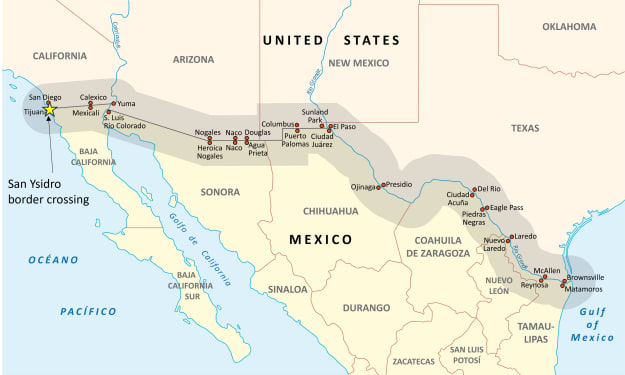The Only Place in the World with No Mosquitoes
Insects: From Mosquito-Free Iceland to Hard-Working Ants

Insects are among the most common creatures on the planet, and they come in all shapes and sizes. From buzzing mosquitoes to hard-working ants, these creatures are an integral part of our ecosystem. However, some insects can be a nuisance or even a threat to humans, while others are harmless and even beneficial to the environment. In this article, we'll explore some fascinating facts about insects, from the mosquito-free Iceland to polar bears in Svalbard.
Mosquito-Free Iceland: A Paradise for Travelers
Mosquitoes are one of the most common insects worldwide, with over 2,500 species buzzing, annoying, and biting people. It seems like you can't escape their silent presence and their incognito nibbles wherever you go. However, there is one place you can go where you don't have to sleep under a protective net or keep bug spray next to you: Iceland.
This European country is isolated from many other places and is home to some rowdy volcanoes and beautiful landscapes. The best part of it all is that you can enjoy your trip without worrying about those little pests. Scientists have been wondering why there aren't any mosquitoes there, even though the cold isn't a dealbreaker for mosquitoes to thrive. They prefer a wet, humid environment instead of the extreme north and south of the planet, but this isn't stopping them from reproducing in cold places. It's just Iceland that mosquitoes aren't particularly fond of.
Some scientific theories include freezing temperatures. Just because mosquitoes can reproduce in Iceland doesn't mean they like it there. Another theory is the chemical composition of the country's soil and water, which the little critters can't adapt to for a breeding ground. The main factor at hand is the temperature and the oceanic climate. Mosquitoes lay their eggs in bodies of water. When the eggs hatch and the larvae emerge, they have to thaw out. This will allow them to repeat the cycle. In Iceland, three major freezes and thaws happen every year. Mosquitoes wouldn't be able to survive through those.
You would also expect neighboring territories like Greenland, Great Britain, and Norway to be hostile to mosquitoes, but this isn't the case. Plenty of these buzzers live and thrive there. Once a mosquito managed to sneak into Iceland on a plane from Greenland. Sadly or luckily, that's for you to decide, it didn't make it due to the conditions. Mosquitoes can travel large distances, but the closest source would be Norway or Scotland, which is too far away for them to fly on their own.
Iceland is free from mosquitoes, but it doesn't seem it will be so forever. Scientists have reported 400 new insect species in the past 30 years. It could mean that either the insects are adapting to different climates, or the climates are changing for insects to thrive. Out of the 2,500 species of mosquitoes, more than 30 live in Britain and Scandinavia. It might be only a matter of time before they adapt and populate Iceland. These particular species would be capable of thriving in Iceland, but for now, the locals can enjoy the blissful freedom of smooth skins.
Ants: The Hard-Working Insects
Unlike mosquitoes, ants are very useful for the environment. They spread seeds and can help get rid of things that harm nature. They build deep tunnels, which can house millions of their kind. Every ant belongs to a colony and remains loyal to one. It's often we see ants marching one by one, scavenging for food outside the colony. They rarely get lost and know exactly who is part of their colony. If they encounter other ants, they won't be too friendly. Instead, ants would rather remain close to their brothers to serve their main purpose and protect their queen. That's what they're born to do.
You can find some ants that come in different sizes. The smaller ones usually take care of the queen and the babies. The regular-sized ones are considered to be the worker or scavenger ants. They build tunnels to house the babies and protect the queen as she roams around the tunnel. The larger ants protect the colony from any imposing danger outside, like some large insects or another ant colony that decided to expand their food search.
Some ants pack a nasty bite, while some will just invade your picnic. And yes, in case you've been wondering, ants do outnumber us, but we still have the power to coexist with them and appreciate their hard work and dedication to their colony.
About the Creator
Abdul Hannan Saif
Blogger | Writer | Explorer | wish to inspire, inform and help others to see fascinating discoveries and live a fulfilled life!






Comments (1)
👏🏻👏🏻👏🏻👏🏻👏🏻👏🏻